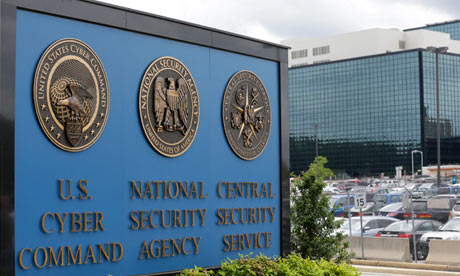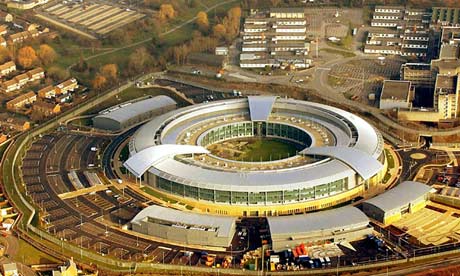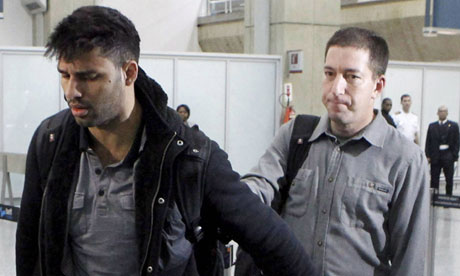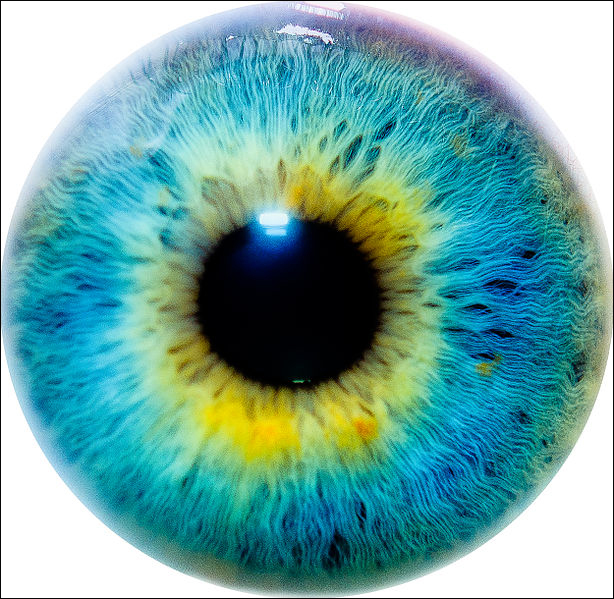http://www.theguardian.com/world/2013/aug/23/nsa-analysts-broke-rules-spy




NSA headquarters in Fort Meade, Maryland. Photograph: Patrick Semansky/AP
US intelligence analysts have deliberately broken rules designed to prevent them from spying on Americans, according to an admission by the National Security Agency that undermines fresh insistences fromBarack Obama on Friday that all breaches were inadvertent.
A report by the NSA's inspector general is understood to have uncovered a number of examples of analysts choosing to ignore so-called "minimisation procedures" aimed at protecting privacy, according to officials speaking to Bloomberg.
"Over the past decade, very rare instances of wilful violations of NSA's authorities have been found," the NSA confirmed in a statement to the news agency. "NSA takes very seriously allegations of misconduct, and cooperates fully with any investigations – responding as appropriate. NSA has zero tolerance for willful violations of the agency's authorities."
Though likely to be a small subset of the thousands of supposedly accidental rule breaches recently revealed by the Washington Post, these cases flatly contradict assurances given by President Obama that the NSA was only ever acting in good faith.
Asked by CNN interviewer Chris Cuomo on Thursday whether he was "confident that you know everything that's going on within that agency and that you can say to the American people, 'It's all done the right way'?", Obama insisted he was.
"Because there are no allegations, and I am very confident – knowing the NSA and how they operate – that purposefully somebody is out there trying to abuse this program or listen in on people's email," he said in the interview that aired on Friday.
The fresh revelations came as Obama's new privacy watchdog delivered its first bark, with a letter to intelligence chiefs urging them draft stronger rules on domestic surveillance, something it revealed had not been updated for 30 years.
The intervention of the Privacy and Civil Liberties Oversight Board, its first since the appointment of new staff by the White House earlier this year, came as Obama acknowledged that technology was outpacing the checks put in place to protect privacy and said the National Security Agency was "scary to people".
"I think there are legitimate concerns that people have that technology is moving so quick that, you know, at some point, does the technology outpace the laws that are in place and the protections that are in place?," said the president in the CNN interview. "Do some of these systems end up being like a loaded gun out there that somebody at some future point could abuse?"
Hours earlier, the Privacy and Civil Liberties Oversight Board (PCLOB) wrote to director of national intelligence James Clapper and the Department of Justice calling for them to begin formulating new guidelines to reflect recent advancements in surveillance capabilities.
It said the board had "learned that key procedures that form the guidelines to protect 'information concerning United States persons' have not comprehensively been updated, in some cases in almost three decades, despite dramatic changes in information use and technology".
PLCOB also requested that "both the attorney general and the director of national intelligence work together to focus the attention necessary to update each element of the intelligence community's procedures to collect retain and disseminate US persons' information".
It said procedures should capture "both the evolution of technology and the roles and capabilities of the intelligence community since 9/11".
"Specifically, the board would appreciate receiving by October 31, 2013, an agency-by-agency schedule establishing a time frame for updating each agency's guidelines," added chairman David Medine.
"In the meantime, the board would appreciate a briefing on the status of the guidelines and process for reviewing and updating them."
Previously PCLOB has been criticised for being too close to the administration and failing to address growing threats to privacy, but its new-found teeth appear to co-incide with a shift in tone from the White House.
In his CNN interview Obama said: "What's been clear since the disclosures that were made by Mr Snowden is that people don't have enough information and aren't confident enough that, between all the safeguards and checks that we put in place within the executive branch, and the federal court oversight that takes place on the program, and congressional oversight, people are still concerned as to whether their emails are being read or their phone calls are being listened to."
"I recognise that we're going to have to continue to improve the safeguards and, as technology moves forward, that means that we may be able to build technologies that give people more assurance, and we do have to do a better job of giving people confidence in how these programs work."
The president hinted at a series of concessions and reforms likely to take place in the coming weeks as Congress returns and responds further to the revelations of sweeping surveillance powers triggered by the Snowden leaks.
"I am open to working with Congress to figure out, can we get more transparency in terms of how the oversight court works? Can – do we need a public advocate in there who people have confidence in?" Obama said.
"There's no doubt that, for all the work that's been done to protect the American people's privacy, the capabilities of the NSA are scary to people."
Leaked Document Reveals Government Paid Millions to PRISM Participants
Government offered millions to tech companies in exchange for unlimited consumer data access
Julie Wilson
Infowars.com
August 23, 2013
Infowars.com
August 23, 2013
As recently as this past June, nine U.S. tech companies denied their involvement and/or participation in the National Security Agency’s (NSA) data-mining program, known as PRISM.
Tech Crunch reported that Google, Apple, Facebook, Dropbox, Microsoft, Paltalk, AOL and Yahoo have all “categorically denied” their participation in the tyrannical NSA program.
According to a new RT report, documents leaked to the Guardian newspaper revealed that not only did some of the tech companies participate, but they were paid millions to do so.
On Friday the Guardian published “new documentation attributed to former intelligence contractor Edward Snowden in which it’s suggested that the US National Security Agency spent millions of dollars making sure the biggest names on the Internet were kept compliant with an international surveillance program disclosed by the leaker earlier this year,” reported RT.
The exposed material suggests the NSA spent millions “ensuring Google, Yahoo, Microsoft and Facebook were able to share information sent over the Web with the federal government.”
When Facebook was questioned regarding their involvement in PRISM in June, they gave the following response:
“We do not provide any government organization with direct access to Facebook servers. When Facebook is asked for data or information about specific individuals, we carefully scrutinize any such request for compliance with all applicable laws, and provide information only to the extent required by law.”
Click here for a complete list of tech giant denials.
A day later, the White House confirmed that U.S. intelligence agencies did in fact have “access to data held by Facebook, Google, Apple and other web giants for nearly six years in a bid to ward off threats to national security,” reported The Week.
The Guardian’s Ewen MacAskill said, “The material provides the first evidence of a financial relationship between the tech companies and the NSA.”
Despite a Foreign Intelligence Surveillance Court ruling the program’s domestic data-mining unconstitutional and a blatant violation of the Fourth Amendment, a NSA newsletter admits it “spent millions to keep tech companies cooperating.”
Special Source Operations, a unit of the NSA, “handles surveillance programs such as PRISM, in which telecommunication companies and Internet providers sign-on to ‘corporate partnerships’ with Uncle Sam,” revealed the classified documents.
Yahoo, who initially denied PRISM involvement said:
“Yahoo! takes users’ privacy very seriously. We do not provide the government with direct access to our servers, systems, or network.”
In regards to the latest disclosure, Yahoo told the Guardian:
“Federal law requires the US government to reimburse providers for costs incurred to respond to compulsory legal process imposed by the government. We have requested reimbursement consistent with this law.”
In June Google defended themselves and their stance on privacy through the following statement:
“Google cares deeply about the security of our users’ data. We disclose user data to government in accordance with the law, and we review all such requests carefully. From time to time, people allege that we have created a government ‘back door’ into our systems, but Google does not have a backdoor for the government to access private user data.”
Now the tech company says, “We await the US government’s response to our petition to publish more national security request data, which will show that our compliance with American national security laws falls far short of the wild claims still being made in the press today.”
Google clearly went from denial to downplaying their relationship with the NSA spy program.
Verizon Wireless is another example of a corporation in bed with the government. In May, the cellphone giant denied media reports that it had a contract with the NSA that provided customer data to the government, reported CNN Money.
Verizon’s statement read, “One of the most glaring and repeated falsehoods in the media reporting is the assertion that, in the aftermath of the 9/11 attacks, Verizon was approached by NSA and entered into an arrangement to provide the NSA with data from its customers’ domestic calls.”
The company said they were “not asked by the government agency to provide, nor did Verizon give out, customer phone records from any of its businesses, or any customer call data.”
Just four months later Verizon announced their willingness to “give the federal government unfettered access to its customers’ phone records,” in exchange for a 10-year $10 billion contract,” reported the New American.
Verizon is just one of ten companies expected to participate. The latest admission projects even more transparency on the “buddy-buddy relationship with departments of the federal government.”
While proof of the government’s domestic spy program is now unavoidable, the President continues to lead the way when it comes to deceiving unsuspecting Americans. On a recent Jay Leno appearance, the President denies that a domestic spy program even exists.
It’s no wonder participating corporations practice the same tactless deceit.
UK items.....

GCHQ's headquarters on the outskirts of Cheltenham. Photograph: Barry Batchelor/PA
(Updated below)
The Independent this morning published an article - which it repeatedly claims comes from "documents obtained from the NSA by Edward Snowden" - disclosing that "Britain runs a secret internet-monitoring station in the Middle East to intercept and process vast quantities of emails, telephone calls and web traffic on behalf of Western intelligence agencies." This is the first time the Independent has published any revelations purportedly from the NSA documents, and it's the type of disclosure which journalists working directly with NSA whistleblower Edward Snowden have thus far avoided.
That leads to the obvious question: who is the source for this disclosure? Snowden this morning said he wants it to be clear that he was not the source for the Independent, stating:
I have never spoken with, worked with, or provided any journalistic materials to the Independent. The journalists I have worked with have, at my request, been judicious and careful in ensuring that the only things disclosed are what the public should know but that does not place any person in danger. People at all levels of society up to and including the President of the United States have recognized the contribution of these careful disclosures to a necessary public debate, and we are proud of this record."It appears that the UK government is now seeking to create an appearance that the Guardian and Washington Post's disclosures are harmful, and they are doing so by intentionally leaking harmful information to The Independent and attributing it to others. The UK government should explain the reasoning behind this decision to disclose information that, were it released by a private citizen, they would argue is a criminal act."
In other words: right as there is a major scandal over the UK's abusive and lawless exploitation of its Terrorism Act - with public opinion against the use of the Terrorism law to detain David Miranda - and right as the UK government is trying to tell a court that there are serious dangers to the public safety from these documents, there suddenly appears exactly the type of disclosure the UK government wants but that has never happened before. That is why Snowden is making clear: despite the Independent's attempt to make it appears that it is so, he is not their source for that disclosure. Who, then, is?
The US government itself has constantly used this tactic: aggressively targeting those who disclose embarrassing or incriminating information about the government in the name of protecting the sanctity of classified information, while simultaneously leaking classified information prolifically when doing so advances their political interests.
One other matter about the Independent article: it strongly suggests that there is some agreement in place to restrict the Guardian's ongoing reporting about the NSA documents. Speaking for myself, let me make one thing clear: I'm not aware of, nor subject to, any agreement that imposes any limitations of any kind on the reporting that I am doing on these documents. I would never agree to any such limitations. As I've made repeatedly clear, bullying tactics of the kind we saw this week will not deter my reporting or the reporting of those I'm working with in any way. I'm working hard on numerous new and significant NSA stories and intend to publish them the moment they are ready.
Related question
For those in the media and elsewhere arguing that the possession and transport of classified information is a crime: does that mean you believe that not only Daniel Ellsberg committed a felony, but also the New York Times reporters and editors did when they received, possessed, copied, transported and published the thousands of pages of top-secret documents known as the Pentagon Papers?
Do you also believe the Washington Post committed felonies when receiving and then publishing top secret information that the Bush administration was maintaining a network for CIA black sites around the world, or when the New York Times revealed in 2005 the top secret program whereby the NSA had created a warrantlesss eavesdropping program aimed at US citizens?
Or is this some newly created standard of criminality that applies only to our NSA reporting? Do media figures who are advocating that possessing or transmitting classified information is a crime really not comprehend the precedent they are setting for investigative journalism?
UPDATE
The Independent's Oliver Wright just tweeted the following:
"For the record: The Independent was not leaked or 'duped' into publishing today's front page story by the Government."
Leaving aside the fact that the Independent article quotes an anonymous "senior Whitehall source", nobody said they were "duped" into publishing anything. The question is: who provided them this document or the information in it? It clearly did not come from Snowden or any of the journalists with whom he has directly worked. The Independent provided no source information whatsoever for their rather significant disclosure of top secret information. Did they see any such documents, and if so, who, generally, provided it to them? I don't mean, obviously, that they should identify their specific source, but at least some information about their basis for these claims, given how significant they are, would be warranted. One would think that they would not have published something like this without either seeing the documents or getting confirmation from someone who has: the class of people who qualify is very small, and includes, most prominently and obviously, the UK government itself.
UK government given Tuesday deadline over David Miranda data
Judges ask government to provide detailed evidence about why it wants right to trawl data seized using terror laws

David Miranda and his partner, the Guardian journalist Glenn Greenwald. Miranda was detained by police at Heathrow last Sunday. Photograph: Marcelo Piu/AFP/Getty
The high court has given the government until Tuesday night to provide detailed evidence about why it wants the right to trawl and share data seized using terror laws from the partner of a Guardian journalist.
Lord Justice Beatson and Judge Kenneth Parker said in a judgment outlining their decision to allow the police to continue accessing material taken from David Miranda that the ruling was made because while they could not judge the strength of the government's claims about the national security risks the material would pose if disclosed, they did have "serious assertions by responsible persons".
Miranda's partner, Glenn Greenwald, has exposed mass digital surveillance by US and UK spy agencies based on material leaked by Edward Snowden, the former US intelligence contractor. Miranda was travelling from Berlin back to his home in Rio de Janeiro when he was detained at Heathrow last Sunday.
Lawyers for the government and Metropolitan police have so far claimed the data seized from Miranda included "highly sensitive material" and "tens of thousands of highly classified UK intelligence documents, the unauthorised disclosure of which would threaten national security, including putting lives at risk". But detail has been limited.
The judges said the lack of further evidence from the authorities was understandable given the rapidly moving case, but it had been "a difficulty". They said the protection of journalistic sources and the protection of national security were competing interests, but "the public interest in the investigation, detection and prosecution of those who are reasonably suspected to be terrorists" justified their decision to allow police to retain the material.
On Thursday, the judges had ruled that the police could retain Miranda's data until next Friday, but added that they are only allowed to examine the data in the context of the protection of national security or for investigating if Miranda himself was involved in terrorism. The judges also said that the data could not be used in the context of a criminal investigation.
It also emerged on Thursday that the Met launched a criminal investigation on Thursday, shortly before Miranda's application for restrictions on the use of the data was first heard in court.
Early on Friday police indicated to Miranda's lawyers that they were prepared to hand back items seized from him last weekend. These were to include DVDs, two watches and a laptop. But on Friday night the police indicated they would not be releasing the items yet.
A letter from the Treasury Solicitor to the court claiming a threat to national security from any unauthorised disclosure of the data said: "It is not possible in this letter to give more of the particulars of this assertion. But we make it on instructions and after having taken advice from the relevant person.".
A full hearing is due to take place next Friday, which will establish how the government is able to use the data in the longer term.
The detailed judgment also gave further clues about what the UK authorities may be doing with the data. Government lawyers have told the court that under the Counter-Terrorism Act 2008 "once material has been lawfully obtained pursuant to schedule 7, it may be disclosed to intelligence services who may then use it for their statutory purposes".
Liberty, the civil liberties and human rights group, has applied to formally intervene in the planned judicial review this autumn into the legality of Miranda's detention and the seizure of his computer hardware. In a letter sent to the court, it said it was "a matter of grave concern that the power has now been directly targeted at the close family member of a prominent journalist in a manner that would appear to be a direct attempt to interfere with press freedom".
Joel Simon, executive director of the New York-based Committee for the Protection of Journalists this week wrote to David Cameron complaining Miranda's detention was "not in keeping with the UK's historic commitment to press freedom".
Thorbjorn Jagland, secretary general of the Council of Europe, has written to the home secretary Theresa May about the detention of Miranda and the destruction of Guardian computers at the request of the UK authorities.
He said that if confirmed, "these measures … may have a potentially chilling effect on journalists' freedom of expression as guaranteed by article 10 of the European convention on human rights". He asked May to "comment on the compatibility of the measures taken with the UK's obligations under the convention".



No comments:
Post a Comment